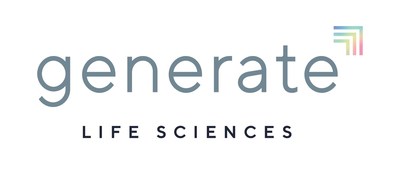Generate Life Sciences today announced it is donating a Sepax 2 S-100 cell bioprocessing system manufactured by Cytiva to Rutgers Cancer Institute of New Jersey to support investigation of the potential efficacy of cord blood infusions in a variety of pediatric brain injuries.
|
LOS ANGELES, Oct. 13, 2021 /PRNewswire/ -- Generate Life Sciences today announced it is donating a Sepax 2 S-100 cell bioprocessing system manufactured by Cytiva to Rutgers Cancer Institute of New Jersey to support investigation of the potential efficacy of cord blood infusions in a variety of pediatric brain injuries. Cytiva's Sepax 2 S-100 is a closed-system bioprocessor that prepares cells for infusion from umbilical cord blood, also known as newborn stem cells*, and other blood derivatives, while maintaining the quality of the cells and protecting them from contamination. With this device, researchers at Rutgers in partnership with investigators at Robert Wood Johnson University Hospital are now able to conduct clinical research studies using cord blood cells for a wide range of indications, joining a global effort to expand access to these therapies. "Umbilical cord blood is a promising therapeutic modality, particularly for pediatric neurologic conditions which do not have a cure today," said Archana Sharma, DO, Pediatric Hematologist/Oncologist at Rutgers Cancer Institute, who conducts cord blood research. "Much research remains to be done to fully understand the optimal application of these cells for therapy, and our Rutgers team is looking forward to doing its part in contributing to this effort. We're grateful to Generate Life Sciences for their contribution of Cytiva equipment, which adds a new critical capability for our research team and allows us to take part in future stem cell-based studies." "We wholeheartedly believe that newborn stem cells will play a key role in the next generation of regenerative medicine therapeutics," said Jaime Shamonki, MD, Generate's Chief Medical Officer. "There are numerous active clinical trials all around the globe that are advancing stem cell therapies, particularly in areas of high need, such as pediatric neurologic disabilities. We welcome the opportunity to work with groups, such as Rutgers, to expand access to these much needed newborn stem cell clinical trial opportunities to as many children as possible." Generate Life Sciences believes that everyone has the right to benefit from the latest scientific advancements to grow and protect their families. This donation helps ensure that more families have access to newborn stem cell therapies, and builds on existing initiatives at Generate:
Generate's family of companies include four of the world's largest newborn stem cell banks — Cord Blood Registry, Insception Lifebank, Cells for Life and Cell Care — and they are well positioned to power regenerative medicine studies, whether through a repository of stem cells available for research, contract manufacturing projects, or clinical development partnerships. For more information about the Sepax 2 S-100, visit the Cytiva product website. *Newborn stem cell is a broad term for cells derived from the umbilical cord, including cord tissue-derived mesenchymal stem cells (MSCs) and cord blood-derived hematopoietic stem cells (HSCs). About Generate Life Sciences Media:
SOURCE Generate Life Sciences |





